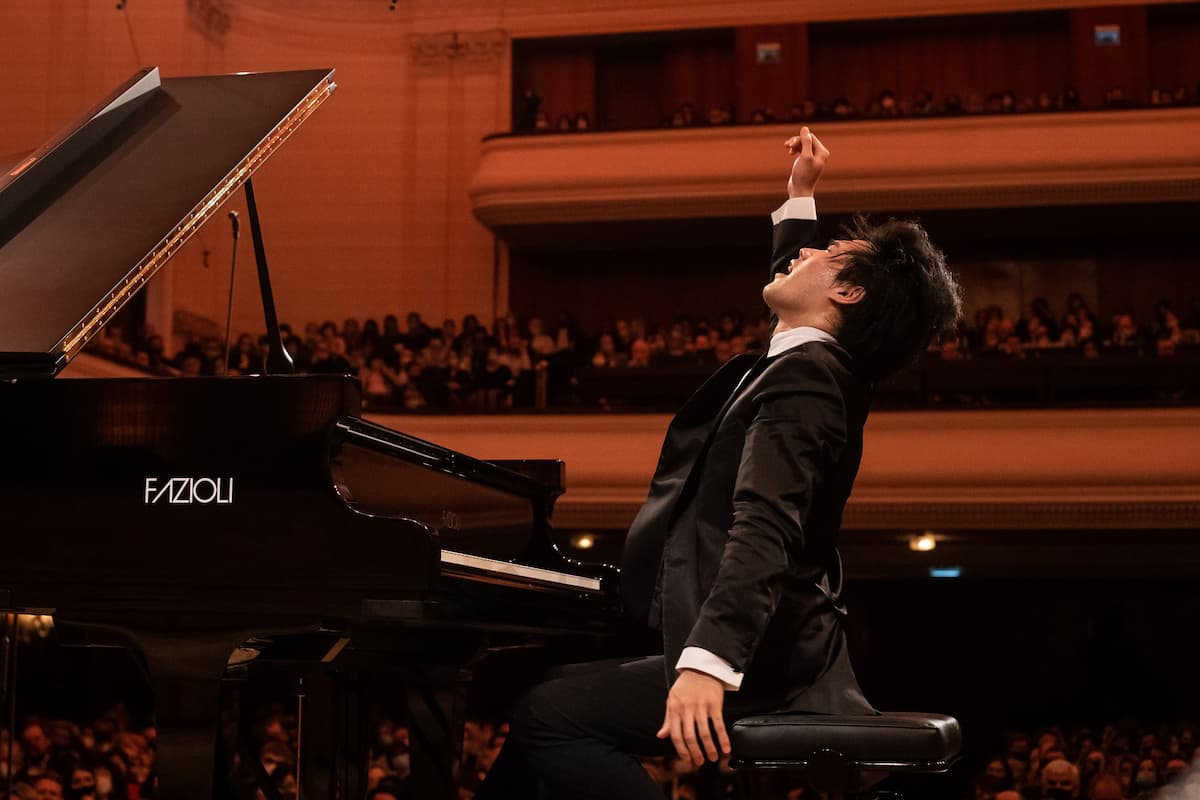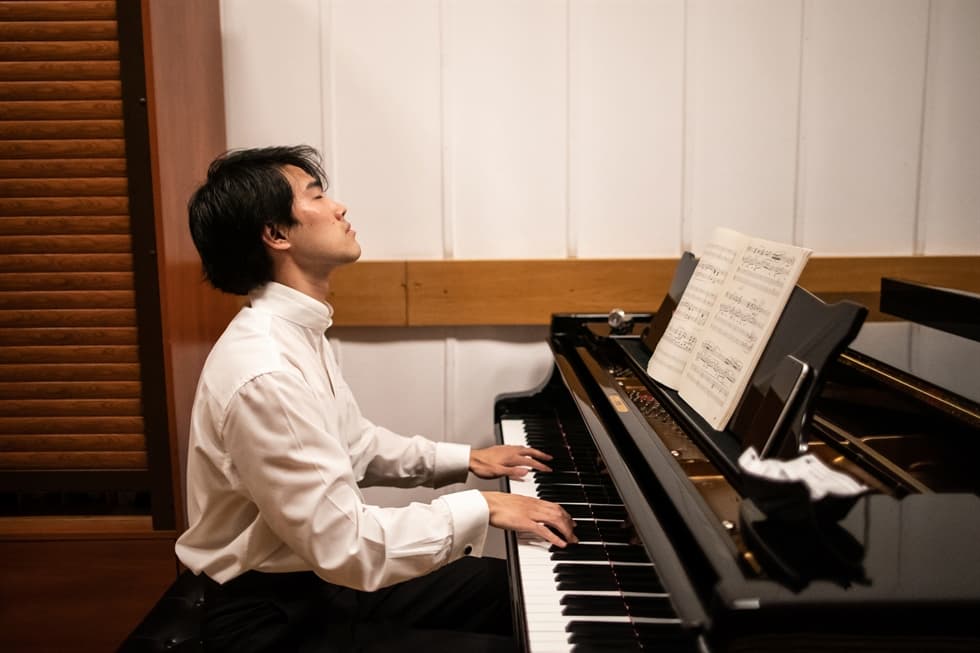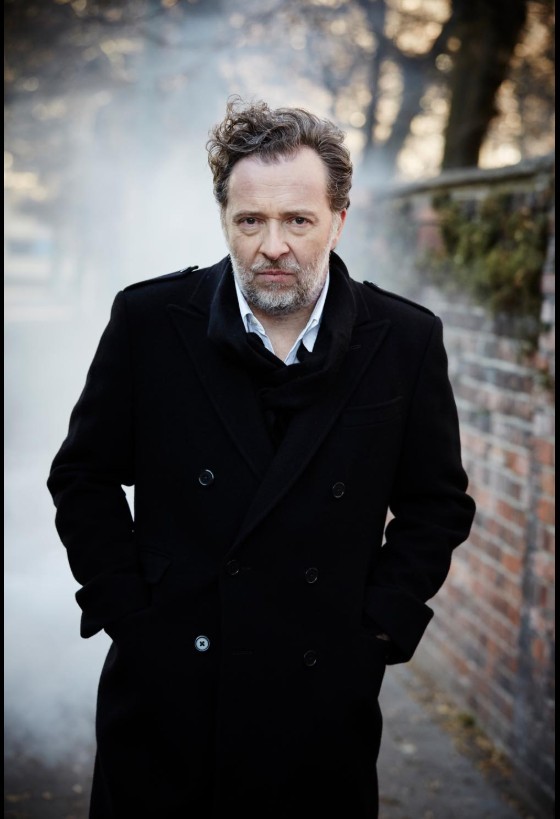Bruce Liu Plays Variations in B flat major, Op. 2 (18th Chopin Competition, third stage)
Canadian pianist Bruce Liu has rocketed to fame since his triumph in the latest Chopin Piano Competition. In his long-awaited debut recital in Hong Kong, he offered Chopin Rondo à la mazur and Piano Sonata No.2, Ravel Miroirs and Liszt Réminiscences de Don Juan, which should promise a journey of turmoil, redemption, imagination, and electricity.

Bruce Liu © Wojciech Grzędziński
The all-Chopin first half, unfortunately, fell short of its promise – phrases were often unnecessarily short, an overarching vision missing, and genuine commitment lacking. In the opening Rondo à la mazur, he adopted a rather fragmented and even neurotic approach in terms of phrasing, and the underlying mazur pulse was not always apparent. The pianist seemed preoccupied with technical tricks at times and failed to see the wood for the trees. Apart from occasional technical imperfections, the heavy reliance on the una corda pedal to create a variety of tone colours compromised the sonority.
Meanwhile, the monumental Piano Sonata No. 2 in B-flat minor by Chopin was bereft of real passion. The episodic approach ensued, thus taking the narrative arc away from the Sonata. The first movement was rather stoic in its expression and did not ignite much agitato. In the Scherzo, the sense of threat was understated, and the underlying mazurka pulse (with the accents on the third beats) was not readily observed. Despite some lyricism and refined gradations in tonal colours and dynamics, the Marche funèbre did not really reach the apocalyptic proportions in the more magisterial readings by some of his colleagues, together with a somewhat irritating tendency to decelerate in the third and fourth beats in the angelic trio in D-flat major. The finale had an effectively long crescendo towards the end, nonetheless.
The second half was, however, a game-changer. Ravel’s Miroirs benefitted from his musical imagination and technical command, although one might wish he had taken more time to savour the luscious moments in Noctuelles and La vallée des cloches. His Une barque sur l’océan evoked the imagery of the glittering sun rays illuminating the crests of the waves and transforming the sea into a shining blanket of red and orange hues. The heavily Spanish-flavoured Alborada del gracioso was played with flair and flamboyance, bringing out the more exotic moments with charm and exhibiting impressive dexterity in the acrobatics, including the repeated notes and double glissandi.

© Chopin Institute
Liszt’s Réminiscences de Don Juan was a pure delight that absolutely brought the house down. One of the most technically demanding works in the piano repertoire, this opera fantasy drew its themes from Mozart’s Don Giovanni. The operatic influence was always palpable under Liu’s hands, from the opening threat by the Commendatore, to the duet between Don Giovanni and Zerlina (Là ci darem la mano) and the effervescent champagne aria, with an almost mischievous use of rubato. The immense technical difficulties were easily transcended, while the electricity and sense of occasion in his playing here were like none in recent memory.
The enraptured audience produced probably the most deafening applause heard in a while in Hong Kong, which Bruce Liu acknowledged with Rameau’s Les Tendres Plaintes and La Poule and Chopin’s Etude Op. 10 No. 5 (also known as the “Black Keys” Etude). The two miniatures by the French Baroque composer were played with generous use of rubato and crisp articulation, while the Chopin Etude had some silky legato and much playfulness.
Listening to Bruce Liu is like riding on a rollercoaster – you would be stunned, you would be electrified, but it would unlikely resonate with your innermost emotions. It’s not difficult to understand why Bruce Liu has become a “superstar” with his charisma, impeccable pianism and spontaneity – but at this moment, it’s honestly more of the Bruce factor than his musicianship.
For more of the best in classical music, sign up to our E-Newsletter


